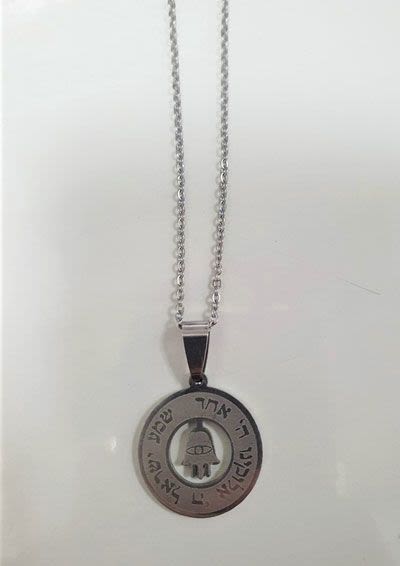
Uprooted
This was a time of limbo for Shlomo – together with his resignation from the church, he lost his job, his home, and his friends. The family would have to move once more…

Strangers No More, Part 12
This was a time without a religion. On the one hand, we were engaged in a battle to find a spiritual home that could nourish the soul. What if we could not find an answer to this longing in our new environment? The ongoing search made us feel restless. A state of emptiness and alienation pulled us in one direction. On the other hand, we had to stay and concentrate on a new career and school for the girls until we knew what we were going to do next.
Coming home to Kronoby did not automatically make it any easier to find employment. Looking for a job in this area was more comfortable, since we had more contacts and knew more people, But I was still the ex-minister with a degree in theology that was not even good enough to teach religion in schools. Even a schoolteacher of religion must be approved by the Church. My first job was as a part-time English teacher for an institute of adult education. It was an enormous relief to find this position, because by that time I had been unemployed for almost two years, the most difficult period of my life.
With this part-time job I slowly got myself back on track, gaining self-confidence. I was needed. My talents could be used again. I enjoyed the classes and the response from the students told me that the feeling was mutual.
Not only did the job do me good, but it also sent a clear message to the community where we lived. “He is a decent fellow after all.” I had started to regain lost confidence. It took time, but I was on my way. My teaching hours were increased and by the next school year I was offered a full-time position in an elementary school. I always regarded teaching as one of my favorite occupations, and I was looking forward to this new position. Although I prefer teaching adults, or at least teenagers, I was eager to get started and did not care that this was a fifth-grade class. Many aspects of the job were new to me. I had to teach Mathematics, Biology, Woodwork, Gymnastics, English and Civics, but not Religion – the only subject in which I had formal qualifications. I enjoyed it anyway. For me it was a great challenge to ensure that these children were actually learning, not just attending school each day. As a minister, I had loved teaching and interacting with people. The same applied to this job. I loved teaching and I loved the children.
My job prospects for the next school year were not promising. The school had to decrease the number of teachers, and I was let go. Before I had time to make any new plans, I received a phone call from the director of education. He offered me another teaching position at a special school for “problem teenagers.” Difficult situations and new tasks always challenged me, so this was definitely something that interested me. Since the director had watched me in action as a teacher, and had enough faith in me to offer me the job, I felt confident enough to accept it. Again I faced a completely new situation. This school, called Lagmansgarden, was beautifully located in the typical flat West Coast landscape, accommodated in a gorgeous old mansion surrounded by large fields and park-like forests. The school had its own tennis court and sports field, although the number of students did not even make up one football team. The school aimed to provide tranquility and harmony for the youngsters, who often came from backgrounds of drug abuse and broken homes.
The teaching was almost on a one-to-one basis, since classes consisted of only four to six students. I made a point of getting to know my students, gaining their confidence and communicating with them. This was no easy task, as so many of them had extremely bad experiences with adults. During this time I also came to know and respect some experienced professionals in the field of treating drug addiction. Some of the educational methods included long walks in the Finnish Lappland. Hikes of ten to twenty miles per day for one week in the wilderness made the tough guys soft and malleable, and more receptive to influence than they had been in years. I used to think that we should take their parents on similar hikes as well, since so often the problems were mirror images of what they had seen at home in their parents – those who had any.
The place we called home during our time in Kronoby was Runa’s childhood home. It was an old farmhouse called The Tailor’s or “Skraddas” in Swedish, because her grandfather used to be a tailor. Runa’s father was a farmer with a special interest in horses. He had been a jockey and won many races with his favorite horse, Fonte.
One warm spring afternoon my wife and I were sitting in the south corner at The Tailor’s, drinking coffee and eating freshly baked wheat buns. Gloria, our golden retriever, was playfully running around, picking up the stick we threw for her. She was Sara’s dog; Sara loves animals and nature and Gloria was the ideal companion for her. Often they went to the forest for long walks. Now I understand the saying that the owner so often resembles their pet. Sara was as blond as Gloria, or vice versa.
From a distance I could see our neighbor approaching. He was our city councilor and this year was election year. I had a funny feeling that I knew what he had in mind and already started to think how I would answer him. It took him some time to get to the point. He joined us for coffee and the discussion consisted mostly of talk about the weather and the approaching agricultural season. The growing season in this part of Finland is short but intense. The long hours of daylight during summer make up for the short season. Finland’s location on the map does not give a correct picture of her climate. The altitude might be the same as Alaska, but due to the Gulf Stream that brings warm air from the Atlantic Ocean, the summer can be rather pleasant. Finland’s main crops are barley, rye, wheat and oats, and, of course, potato.
Our neighbor was a farmer, known to be very knowledgeable and intelligent. Not many of his generation spoke English, but Torolf had studied on his own and often had to function as a translator when somebody in the village received a letter from a relative who migrated to the United States generations ago. Almost every family had somebody who had emigrated “over there.” Runa’s three uncles left for Canada in the 1930s.
I was enjoying our coffee and chat, but I was curious about the real reason for Torolf’s visit. Finally he came to the point. My suspicions were confirmed. He asked me if I was prepared to be a candidate at the upcoming election in the municipal council. Communal affairs and politics interested me, along with many other things. I was attracted to the idea. There was only one big question mark. I needed votes to be elected. Who would vote for me? Every single voter in the entire district belonged to the Church, and even if the city council did not have anything to do with religious affairs, there was still a dividing line between me and the electorate. Torolf was not particularly religious, so he did not place too much emphasis on my decision to leave the Church. “Don’t worry about that,” he said, “people here know you. I have asked around and many agree that you will have the support needed to get in.” Ask again, I begged him. I also needed time to reflect on the idea myself. Who said I was going to stay in Kronoby for the next four years, the duration of the mandate?
To be continued.
(Strangers No More, by Shlomo Brunell. Reprinted with courtesy of Gefen Publishing House 2005 www.gefenpublishing.com)














Tell us what you think!
Thank you for your comment!
It will be published after approval by the Editor.